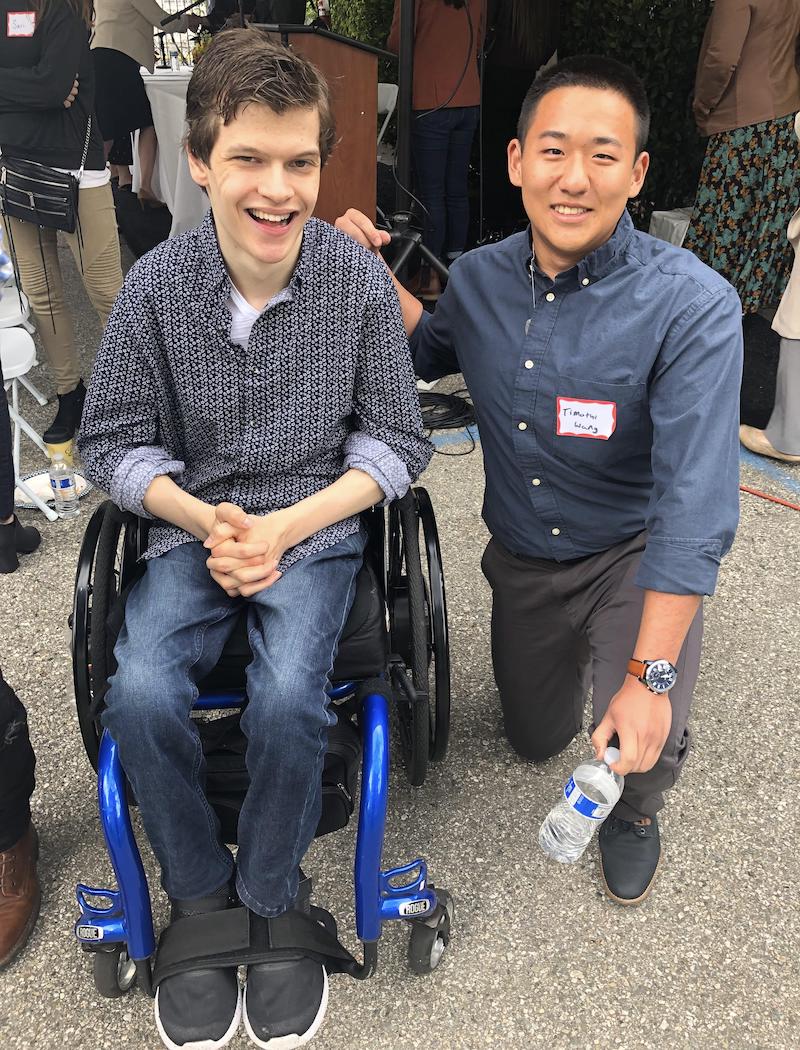For student Timothy Wang, it’s OK to fall asleep in class
March 13, 2020
In support of Day4Naps, a global narcolepsy awareness day on March 14, Wang shared with student ambassador Kaho Ishizuki more about his condition and how it has shaped his life and aspirations.
Timothy Wang is a bachelor’s-to-master’s student in the USC Chan Division of Occupational Science and Occupational Therapy. After spending his childhood in Houston, he moved to Los Angeles two years ago to attend college. He enjoys spending time with his friends and family, reading, photography, playing different sports and taking care of his plants. When asked what kind of plants he likes to grow, he joked, “anything I can keep alive.”
When were you diagnosed with narcolepsy?
I had symptoms throughout middle school. I was falling asleep in lectures and failing my classes. I remember acting out for attention and out of frustration, because I wasn’t doing as well as I usually do in school. My mom knew something was wrong, and took me into the doctor during my freshman year of high school. They ran a bunch of lab tests like blood tests, and they finally were able to diagnose me after a sleep test. A normal person takes about 90 minutes to enter REM sleep. The doctor found that I can do it in two.
From there, I had to fight for accommodations at my high school, which was really hard. We would have to sit through five-hour meetings with a lawyer and everything. I also struggled to find the right medication. The doctor had to take me off various kinds, and prescribe me a new kind, multiple times before I found the right combination that could keep my symptoms controlled.
Did having your symptoms labeled by the physician have any positive or negative effects?
I had already been living with it for three years, so it didn’t make a significant difference, but it was still nice to have my symptoms labeled because, like I said before, it was putting a strain on the relationship between my mom and me. It explained why I wasn’t doing well in school, and proved that I wasn’t just making things up.
What made you want to pursue a career in occupational therapy?
Actually, I originally wanted to pursue disability advocacy because of my own experiences having to fight for accommodations in high school. I volunteered as a camp counselor at a summer camp for kids with special needs for about 5 years. Around the time, when I was trying to figure out where to go for college and what to do, the director of the organization hosting the camp recommended occupational therapy to me after seeing how I was with the kids.
How does narcolepsy affect your daily occupations?
I had some safety concerns. One time, I was going down the stairs and I fell to the floor. That’s called cataplexy, or sudden loss of muscle tone. It’s a symptom of narcolepsy that is often misconceived as falling asleep, but I’m actually awake during the event — I just can’t control my muscle strength at the time. I thought, “maybe I should take the elevator so that I’m not falling down stairs.”
I fall asleep in classes, or don’t wake up in time for classes, so I have to put in more time outside of class to study, which takes away from my social life. I need to take naps every day too. I have to prioritize, which I’m not very good at, because there’s never enough time to do everything I want. I’m still learning. Now that I’ve been living with narcolepsy for several years, I can kind of feel it when I’m about to have an episode. It doesn’t happen too often, now that it’s controlled fairly well through my medications, but if it does, I just have to lean against a wall.
How do you work around it, or embrace it?
In addition to controlling the cataplexy through medications and making changes like taking the elevator instead of the stairs for safety, when it comes to classes USC is much better at giving me the accommodations that I need, compared to my high school. For my social life, I tell my friends about my condition, if I feel comfortable. That way, if I bail on a plan, they’ll be more understanding. It’s important for me to have a supportive group of friends. I have friends who support me in small ways, such as letting me nap on their couch if I start feeling tired.
How do your experiences influence what kind of occupational therapist that you want to be?
Because of the issues that I had to work with when getting accommodations, I want to educate myself on disability rights and advocate for kids with all kinds of special needs, not just those with narcolepsy. I want to be supportive of my clients and everything else that a great occupational therapist would be.
Is there anything you want the world to know about narcolepsy, or about people with narcolepsy?
It’s a pretty rare disorder, so not many people understand it. But I would say, just don’t take it personally. If I fall asleep in class, it’s not because I’m bored. If I cancel on our plans, it’s not because I didn’t want to go. I just can’t help being tired, and it is nothing personal.
Wang (right) at an occupational therapy event where he got to meet the actor Micah Fowler from Speechless | Photo courtesy of Timothy Wang
⋯
Next by tag Health and Wellness ⟩ Students ⟩






